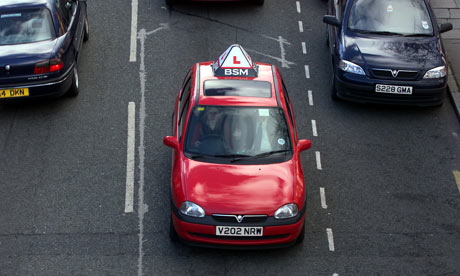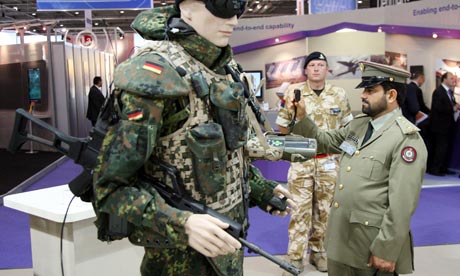'People will forgive you for being wrong, but they will never forgive you for being right - especially if events prove you right while proving them wrong.' Thomas Sowell
Search This Blog
Showing posts with label licence. Show all posts
Showing posts with label licence. Show all posts
Wednesday, 24 January 2024
Sunday, 2 January 2022
Saturday, 21 November 2015
Enough PhD’s, thank you
Pervez Hoodbhoy in The Dawn
When Freeman Dyson suggested we have lunch together at the Princeton University cafeteria on my next visit, I almost fell off my chair. To be invited by this legendary physicist, now 90-plus but sharp as ever, meant more than a banquet especially arranged for me by the Queen of England. Countless kings, queens, and generals have come and gone but only a tiny number of visionaries, Dyson included, actually make history.
Overwhelmed, I was about to blurt “thank you, Dr Dyson” but stopped in time. Else this would have violated an unstated protocol. We theoretical physicists address colleagues by their first name. And so I simply thanked him as Freeman. This avoided a still more serious error. Freeman Dyson does not have a PhD and has never sought or needed one.
Three books and biographies have been written on this PhD-less scientific genius. But, were he to apply to a Pakistani university, at best he might become an assistant professor. I thought of this while suffering through some lectures last week at an international physics conference in Islamabad.
Sadly, the presentations by most Pakistani PhD’s were uninteresting, others were wrong. One was even laughably wrong. Probably the worst was by a professor who was not just a ‘doctor’ but a ‘professor doctor’. This terrible pomposity, borrowed from some German tradition, is now routinely augmented with ‘distinguished professor’, ‘national professor’ and what-not. Like cartoon generals who have won no wars but have medals stuck to oversized chests, Pakistan now has legions of highly paid ignoramus cartoon professors.
Pakistan now has legions of highly paid ignoramus cartoon professors.
But wait, am I not being terribly unfair? Our professors are publishing huge numbers of research papers these days, almost 10 times more than a decade ago. Some produce as many as 40-60 every year (Dyson’s lifetime total is a mere 50). These appear in so-called international journals with high-impact factors, are well-cited, and seeming fulfil all requirements of high quality. The authors rake in cash prizes, national awards, and the Higher Education Commission (HEC) screams about the post-2002 ‘revolution’ at every opportunity.
But the truth forlornly begs to be heard: there is no actual research behind most of these so-called research papers. The internet has placed at an author’s fingertip vast amounts of literature from which to freely cut and paste, invent data, and plagiarise ideas. Although software checks like Turn-It-In exist, they are next to useless. True, the ideal journal referee is supposed to be a know-all. But in fact he is too hard-pressed to check everything, or may even be complicit. Publishing in fly-by-night journals, or arranging for your paper to be cited, is now a finely developed art form.
Crime in Pakistani academia has overtaken even the legendary bribery of our police departments or the easy corruption of income tax authorities. But dealing with academic heist, now organised and systematised, won’t be easy. Here’s why.
First, knowledge is increasingly specialised and to detect cheating isn’t easy. A molecular biologist might not fairly judge the work of an ethologist, or a plasma physicist that of a string theorist. In principle any academic community must police itself rather than be policed from outside. But the small number of genuine academics in Pakistan means that there are precious few policemen.
Second, a thoughtless government policy that pays by the number of research papers and PhD’s produced allows cheats to get rich. Unable to tell good from bad, the Pakistan Council for Science and Technology actively encourages our professors to pillage public property.
The same dynamics applies to PhD production. The basic subject knowledge of PhD candidates is rarely tested and, if ever, only perfunctorily. Although the referees of a candidate’s thesis are supposed to be impartial, they are often chosen by a supervisor for being cooperative. Of course, the reports can be appropriately doctored when necessary.
Most PhD supervisors never get caught while doctoring. But if by rare chance someone does, he gets little more than a tap on the wrist. A colleague, a former professor of biology at Quaid-i-Azam University, then also the dean, was caught red-handed while faking referee reports for his PhD students. He admitted guilt but was not terminated and retained all retirement benefits. The administration and other colleagues shrugged off the incident; why be strict to one of your own kind? The man moved on to become dean at another university, and then emerged yet again as vice chancellor at still another university.
This ‘kindness’ has put the cancer of corruption into metastasis. Arresting further growth will require a harsh chemotherapy regime. As the very first step, rewarding authors of research papers with cash should be stopped. PCST, as well as other government organisations deliberately fuelling academic corruption, should be closed down and their directors charge-sheeted.
Transparency should be non-negotiable. While it cannot end abuse, it can discourage. So, before the author of a research paper gets any kind of credit, such as for promotion, he must give a presentation that anyone can freely attend. This should be video-recorded and archived for open access on HEC’s website. Whereas HEC’s present chairman privately agreed to my suggestion nearly two years ago, and then publicly on television a year later, I see no signs of implementation.
Still more radical therapy may be needed. As with a driving licence, all PhD degrees (including my own) should be de-recognised every 10 years, and re-recognised only after passing a literacy test in that particular discipline. Administered by some trustable overseas organisation, the written test should be at the level of an undergraduate examination equivalent to that taken by students after their first year of studies at a good foreign university. Will this reduce our current PhD population by 50 per cent? Eighty per cent?
No country becomes wealthy by printing a mountain of paper currency. And no university system becomes better by dishing out substandard PhD degrees, or by accepting vacuous research papers as valid. Instead, the way forward lies in adhering to strict ethical standards, cultivating excellence, rejecting mediocrity, and nurturing a spirit of inquiry and intellectual excitement.
Wednesday, 5 March 2014
India's activist role in breaking the pharmaceutical patent monopolies
Ritu Kumar in The Indian Express 4 March 2014
Recently, there were rumours that the United States Trade Representative (USTR) was getting ready to announce “trade enforcement actions” or sanctions against India over its intellectual property rights regime. The Obama administration has been under pressure from the US Chamber of Commerce and lobby groups, like the Pharmaceutical Research and Manufacturers of America, to take a tough stance against Indian rulings that have vetoed several multinational pharmaceutical company patents.
The lobbyists are pushing for India to be classified as a “priority foreign country”, a label associated with the worst offenders of patent law. The row blew over, but not before the USTR had filed a case at the World Trade Organisation (WTO) against India’s domestic content requirements for its solar programme.
In the last few years, the Indian government and judiciary have taken up major cases on patent protection for life-saving cancer drugs. Novartis’s drug Glivec was denied patent protection by the Supreme Court and India granted a compulsory licence to Bayer’s drug Nexavar, which treats kidney and liver cancer.
Compulsory licences are a provision in international patent norms, including the WTO’s TRIPS agreement, under which a government permits someone else to manufacture the patented product without the consent of the patent owner, usually to lower prices of life-saving drugs and increase access to them.
This is not the first time that India has taken a strong stance in the pharmaceutical patent wars. In 2001, Indian generic manufacturers played a crucial role in slashing prices of anti-retroviral (ARV) drugs used against HIV, bringing down the cost of the drugs per patient per year from around $15,000 to about $300. Today, the cost of ARV drugs is as low as $60 per patient per year. This remarkable achievement was only possible because at the time, India was not party to WTO agreements on patent protection.
Indian generic manufacturers were able to disregard patents, and ended up supplying over 80 per cent of all ARV drugs purchased in the world. India was recognised as playing a leading role in providing quality healthcare to people in developing countries.
It is evident that India’s role in the pharmaceutical patent wars has great implications for poor people’s access to healthcare, not just at home but around the world. Emerging economies like Brazil and South Africa follow the Indian model when they modify their intellectual property laws in order to bar awards to frivolous and obvious patents, and to allow pre-and post-grant challenges. For instance, Brazil’s proposed changes to its patent policy quote provisions in India’s Patents (Amendment) Act, 2005. Doctors Without Borders, meanwhile, has publicly encouraged South Africa to borrow from India when drafting its new patent policy.
With markets in the developed world becoming saturated, multinational drug companies are increasingly looking to emerging economies with large populations for sales expansion and growth. However, their model of intellectual property protection as an incentive for innovation is running into obstacles in low- and middle-income countries. Supporters of the pharmaceutical industry believe that without patent protections, there will be no breakthrough innovations and no new life-saving technologies.
They argue that the high costs of research and development for new drugs can only be compensated by patent monopolies that allow expensive drug prices. Yet, developing economies are keen on providing affordable healthcare products for their citizens. The developed world itself is beset with unsustainable rising healthcare costs and is looking for cost-effective innovation. A reassessment of patent monopolies, especially in the case of life-saving products, is essential if healthcare access is to be broadened beyond wealthy patients.
Some new models of incentivising medical research are being proposed. Since large funds are required for the development of new medical technologies, scholars have proposed the creation of attractive prizes, along the lines of the XPrize, which was instituted to encourage space exploration by giving successful teams up to $10 million in awards. The idea behind prizes is that the winning team receives a large one-time payment, but it cannot patent the solution, which ensures that the technology remains in the public domain.
Other models of funding innovation have already seen success in the marketplace, such as the public-private partnership that created a new rotavirus vaccine. This vaccine, called Rotavac, is now sold in India and other developing countries by Bharat Biotech, at profit, for about $1 per dose.
Millions of patients are suffering from many other poorly managed or untreatable diseases, such as diabetes or dengue fever. They would greatly benefit if companies were incentivised to create therapies at affordable prices that were widely accessible. India must not slow the pace of developing new therapies, nor shy away from the difficult work of making healthcare available to all. The rest of the world is watching.
Wednesday, 4 December 2013
A UK driving license is basically a PhD in driving
An American tribute to British drivers
I have newfound respect for all the motorists I encounter on British roads.

An experienced driving instructor can earn £35,000 a year. Photograph: Christopher Thomond
The United States and the United Kingdom have many important similarities, but a rigorous driving test is not one of them. As an American who recently passed the UK driving theory and practical tests, I have newfound respect for all the motorists I encounter on British roads.
To get my American license when I was 16 years old, I had to take a very short multiple choice theory test. Having not studied and never driven, I passed easily. Then I took a practical test that consisted of a 15-minute amble through a flat rural area. I performed poorly, and at the end of my test the examiner turned to me and said, "You really don't know what you're doin', do ya?" And he passed me.
I initially assumed the UK test was comparable to the one across the pond. But then I read that the large majority of UK motorists fail their first driving exam. And I heard horror stories of Americans and other foreigners failing multiple times. I began to study (or "revise" as you Brits say) in earnest.
I'm a doctoral student at Cambridge, and I'm quite sure I prepared much more for my driving tests than I will for my PhD viva next year.
A UK license is basically a PhD in driving.
I read the Highway Code. I read the entire 528-page AA Complete Test book, reviewing all of its 948 multiple-choice questions. I bought the Driving Test Success DVD, watching hours of slightly awkward inside-the-car footage of UK driving lessons. I watched countless "hazard perception" videos on YouTube.
The night before my practical test I fell asleep around 2am on my sofa with my laptop on my stomach as I watched "show me, tell me" vehicle safety tutorials. Had I not watched those videos, my answer to every vehicle safety question during the real test would have been "I would call my dad and then call AA."
(Note to American readers: AA is the British equivalent of AAA, but for some reason they don't call it the "American Automobile Association" in the UK.)
In the course of my studies I had to learn all those charming British motoring terms. To me, many of the terms sounded more like names for rock and folk bands. You know, when I was a teenager I loved heavy metal bands like Kerb, Slip Road, and MOT, and punk bands like The Rising Bollards. Now that I'm older, I prefer the gentler acoustic sound of bands like Soft Verge, Central Reservation, Pelican Crossing, Gantry Sign, and Urban Clearway, though I can still dig the pop-punk energy of Double Mini Roundabout.
I also had to create mnemonic devices to remember the differences between Britain's bird-name road crossings. A toucan crossing is where "two can" cross – both pedestrians and cyclists. At a puffin crossing, a pedestrian may be "huffin' and puffin' to get across" because there is no flashing amber light. Oh, apparently "amber" means "yellow" in English English. I've taken to calling Britain's other traffic lights ruby and emerald.
Thanks to my preparation, I passed the theory test, though my hazard perception score was hazardously low.
When the moment of my practical test arrived, I was a nervous wreck – though thankfully not a literal wreck. I tried to endear myself to my stiff-upper-lipped examiner by noting that the driving tests in America are "a bit different". He chuckled and said, "they're a joke".
To be fair to Americans, we drive big automatic cars on wide, open, straight roads, and most of our country is farmland and wilderness. Most of our towns and cities were laid out after the invention of the automobile. America is a car-based civilization. A Declaration of Independence from public transportation is part of our national psyche. A burdensome license test would be seen as an infringement on our fundamental human right to drive.
Things are "a bit different" in Britain. You have eight times the population density of the United States and many of your narrow, windy roads were developed before the invention of even the horse-drawn coach.
My American compatriots are shocked when I tell them that to earn a UK license I had to take a lengthy theory test, computerized hazard perception test, eye sight test, vehicle safety test, and a 40-minute driving test with a meticulous examiner jotting down each of my "faults" in real time.
As my faults mounted during the test, I prayed that we would turn back toward the test centre before I surpassed the maximum level of acceptable faultiness. I'm a married homeowner who drives an MPV with two toddlers in car seats; I'm hardly a risk-taker on the road. But I am an American. The examiner perceived my hazardousness and marked me down for not looking in my mirrors before I signalled – seven times.
Now I'm always conscious of looking in the mirrors before I signal and manoeuvre. Thanks to the rigors of the UK driving test, I'm a much safer driver, and I'm glad that I share the road with a nation of drivers who had to pass the same demanding test.
The people of Great Britain can be rightfully proud of their great driving skills. Whereas the easy US tests make me wary of American drivers, here in the UK, I've embraced the mantra Keep Calm and Drive On.
Monday, 2 September 2013
Chemical export licences for Syria – just another UK deal with a dictator
Britain is in no position to lecture on human rights when Vince Cable's authorisation follows a long history of arms sales

Defence Systems and Equipment International arms fair at the Excel Centre, Docklands, London. Photograph: Rex Features
The latest revelations about the authorisation of chemical exports to Syria proves that British ministers should avoid two things – lecturing the public on personal morality and lecturing the world on human rights. Both will come back to bite them. While Nick Clegg commented on the pages of the Guardian earlier this year that the UK was a "beacon for human rights", his business secretary was authorising companies to sell chemicals capable of being used to make nerve gas to a country in the middle of a civil war.
Clegg almost certainly knew nothing about the potential sales, and indeed the sales themselves might have been quite innocent, but our history should tell us that precaution is the best principle. If the companies had got their act together to ship the goods to Syria, they would probably have received government support through a unit of Cable's Department for Business, Innovation and Skills, called UK Export Finance. This unit has sold weapons to some of the worst dictators of the past 40 years – and had a role to play in the most serious chemical weapons abuses since the Vietnam war.
Jubilee Debt Campaign has released new information which confirms that the British government effectively armed both sides during the Iran-Iraq war – one of the Middle East's most bloody conflicts.
Britain had been happily selling weapons to Saddam Hussein, our ally during his war against the new Islamic Republic, in the early 1980s. The UK government also allowed the sale of the goods needed to make a chemical plant which the US later claimed was essential to Saddam's chemical weapons arsenal, with the full knowledge that the plant was likely to be used to produce nerve gas. Saddam used chemical weapons against Iranian soldiers and against civilians within his own country in 1988, killing tens of thousands.
This is old news, but we now also know that until the fall of the Shah in 1979, Britain also sold Rapier missiles and Chieftain tanks to Iran's autocratic regime – weapons that were undoubtedly also used in the Iran-Iraq war.
Both sets of arms were effectively paid for by the British taxpayer, as both Iraq and Iran defaulted on the loans given by Britain, and they became part of Iraq and Iran's debt. Though Iran still "owes" £28m to Britain, plus an undisclosed amount of interest, this didn't stop Britain guaranteeing £178m of loans to Iran to buy British exports for gas and oil developments in the mid 2000s, thus breaking its own rules.
This new information adds to a litany of such cases – supporting arms sales to the brutal General Suharto of Indonesia, both Sadat and Mubarak in Egypt and military juntas in Ecuador and Argentina, the latter using its British weapons to invade the Falkland Islands.
In opposition, Cable railed against the use of taxpayer money to support such sales, and his party promised to audit and cancel these debts and stop the sales. In power, he behaves the same way as his predecessors. While regularly claiming such deals are a "thing of the past", Cable has signed off £2bn of loans to the dictatorship in Oman to buy British Typhoon fighter aircraft, the sale of a hovercraft to the highly indebted Pakistan navy and an iron ore mine in Sierra Leone which has not even been assessed for its human rights impact.
Cable has ripped up Liberal Democrat policy to keep on supporting the sale of dangerous goods. He continues to insist on the repayment of debts run up by the UK selling weapons to now deposed dictators. Far from being a beacon for human rights, the UK has little legitimacy around the world when it comes to taking sides in wars – a fact that parliament recognised in its welcome vote last Thursday.
Next week, Britain's true role in the world will be on show in Docklands – when the world's "leading" military sales event meets in London. As war and the aftermath of war still rage across the Middle East, one way we as citizens improve our country's damaged reputation is to protest against such an appalling expression of Britain's role in the world. Authorising the export of chemicals to Syria is simply part of a long trend of support for dangerous technology which undermines this country's legitimacy when it comes to speaking about human rights.
Subscribe to:
Comments (Atom)

